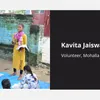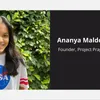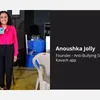How these young teenagers are enabling change for social good
From awareness around menstruation to ensuring access to education, these four teenagers are bringing change in their locality.
No action is too small to make a difference.
Even as India has progressed over the decades, a huge economic and social disparity still exists that affects more girls and women than men. Safety concerns in public and social stigma around women’s health limit opportunities for this demographic in many ways. But young girls are also taking charge and working towards solutions.
Here are four teenagers tackling problems like access to education, social taboo around menstruation, and bullying.
Kavita Jaiswal
Education is a privilege for young girls in Kallu Ka Purva, a hamlet in Raebareli, Uttar Pradesh. While they have access to education until Class 5 in the hamlet, for high school and futher education, they are forced to travel into town. However, most parents are reluctant to send their girls to town for further studies due to rampant incidents of eve-teasing.
So, when the pandemic worsened access to education, 17-year-old Kavita Jaiswal started teaching children in the neighborhood through Oxfam India’s ‘Mohalla School.’
Kavita is among the 120 volunteers that Oxfam had identified in Raebareli and Banda districts who were trained with the help of the Gram Panchayat and school teachers.
When a large number of parents feared the risk of coronavirus spread, Kavita and her mother, who is the president of the School Management Committee (SMC) at Kallu Ka Purva Primary School (Raebareli), personally visited and convinced many families of all the safety protocols undertaken such as social distancing and wearing masks.
Thus, starting with 10 students, she went on to teach English, Maths, Science, and other subjects to over 30 students for an hour and half every day.
Advaitesha Birla
Eighteen-year-old Advaitesha Birla, the youngest member of the Birla family, is working towards sustainable change in menstrual health and hygiene management through awareness campaigns at the grassroot level.
In December 2021, she founded Ujaas, a non-profit organisation under the Aditya Birla Education Trust (Abet) to raise awareness among young girls and their families as well as through age-appropriate workshops and also to distribute free sanitary napkins.
To make young girls self-sufficient, the organisation has trained more than 10,000 girls to make their own sanitary napkins. When Advaitesha learnt through field work that girls have no idea about menstruation till their first period, Ujaas began conducting sessions with mothers to educate them on menstrual health.
Ananya Malde

Ananya during an awareness session on menstruation and puberty
Ananya Malde, 14, learnt about the far-reaching social problems of menstruation when her house help's younger sister had to quit school from seventh grade due to periods. This prompted Ananya to start Project Pragati to educate and debunk the superstitions surrounding the topic, and support young girls in rural areas by providing period products.
Working at government schools in rural areas of Gujarat since November 2020, she saw that teachers shy away from teaching about menstruation while others are not aware of what menstruation really is. So, Ananya designed a comprehensive menstrual health curriculum that includes everything from puberty, adolescence to period and hormonal changes in the female body in Gujarati language as most resources available online are in English or Hindi.
The young changemaker also ran an online fundraiser and collected Rs 5.5 lakh which went towards providing sanitary napkins and getting incinerators installed in schools for pad disposal.
Anoushka Jolly
Anoushka Jolly, a Class 6 student at Pathways School in New Delhi could never forget seeing a helpless six-year-old getting bullied and teased a couple of years ago.
In 2018, this led her to start the Anti-Bullying Squad (ABS), a website that organises individual one-on-one sessions in schools, sells ABS merchandise, and urges young people to take a pledge against bullying.
The youngest participant at Shark Tank India, she secured Rs 50 lakh in funding from investors Aman Gupta and Anupam Mittal for her anti-bullying app, Kavach. From taking offline sessions in the first two year, Anoushka pivoted towards taking online sessions and now offering recorded sessions for self-paced learning. She says the app has been a good medium for victims, bystanders, or parents to report cases anonymously.
Edited by Anju Narayanan











